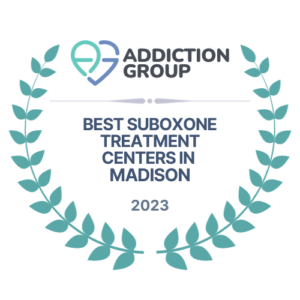In today’s world, where millions are grappling with the painful reality of addiction, recovery offers a beacon of hope. The path to sobriety is multi-faceted, involving various elements from therapy and counseling to lifestyle changes. Among these, one aspect that often gets overlooked, despite its paramount importance, is nutrition. In fact, the significance of nutrition in addiction recovery cannot be overstated.
Understanding the importance of nutrition in addiction recovery forms an integral part of the journey towards a healthier life. It goes far beyond merely maintaining a balanced diet. Nutrition plays a profound role in physical healing, mental well-being, and ultimately, in maintaining long-term sobriety.
When individuals battle addiction, their bodies and minds undergo significant stress. Poor dietary habits, often associated with addictive behavior, exacerbate this strain, depleting the body of essential nutrients it needs to function properly. By placing a focus on proper nutrition during recovery, we can help restore physical health, boost mental resilience, and lay the groundwork for a sustainable sober lifestyle.


The Critical Role of Nutrition in Recovery
Nutrition is often the unsung hero in the journey of recovery. Its role, while pivotal, frequently goes unnoticed amidst the complex web of addiction treatment plans. Yet, nutrition is a cornerstone of the recovery process, directly impacting both physical restoration and psychological well-being.
Physical Restoration Through Nutrition
Addiction can take a severe toll on the body. It depletes essential nutrients, disrupts normal metabolic functions, and often leads to unhealthy dietary patterns. This combination of factors can result in significant physical and mental health issues, ranging from malnutrition and organ damage to mental fog and mood swings. Therefore, as part of a comprehensive recovery plan, nutritional healing becomes paramount.
The body’s incredible ability to heal itself is largely dependent on the fuel it receives. Healthy, balanced nutrition provides this fuel. It replenishes lost nutrients, supports detoxification, and aids in repairing the damage caused by substance abuse. For example, vitamins and minerals from fruits, vegetables, lean proteins, and whole grains can help restore liver function, heal gut lining, and boost the immune system.
The Psychological Impact of Nutrition
Notably, nutrition also plays a critical role in mental health during recovery. There is a well-documented connection between nutrition and the brain’s function. Nutrient-dense foods provide the essential building blocks for neurotransmitters – the brain’s chemical messengers – and support overall brain health. This nutritional reinforcement can alleviate some withdrawal symptoms, improve mood, and even help reduce cravings.
In the context of addiction recovery, therefore, nutrition is not an afterthought or a side-note. It is a vital part of the healing process. Prioritizing nutrition fosters a holistic approach to recovery that addresses both the body and the mind, setting the stage for long-term success. Recognizing and understanding the critical role of nutrition in recovery is a powerful step towards embracing a healthier, substance-free lifestyle.
The Impact of Substance Abuse on Nutritional Health
Substance abuse does more than just damage the mind; it also wreaks havoc on the body, particularly on nutritional health. Understanding these physiological impacts of addiction is essential for grasping why nutrition is so important in the recovery process.
Substances like drugs and alcohol can significantly affect the body’s metabolism, the process by which our bodies convert food into energy. They can disrupt the absorption and utilization of nutrients, leading to deficiencies and imbalances that affect overall health.
1. Effects on the Digestive System
Many substances of abuse directly impact the digestive system. For instance, alcohol can cause inflammation and damage to the stomach and intestines, impairing the body’s ability to absorb essential nutrients, vitamins, and minerals. Opiates, on the other hand, can lead to gastrointestinal issues such as constipation, which further hampers proper nutrition.
2. Impact on Appetite and Dietary Habits
Substance abuse also often leads to poor dietary habits. Some substances suppress appetite, leading to inadequate food intake, while others may increase cravings for unhealthy foods. Moreover, individuals struggling with addiction may neglect their diets in favor of substance use, contributing to malnutrition over time.
3. Nutrient Depletion
Certain substances can also cause the body to deplete nutrients more quickly. For example, alcohol can lead to the depletion of B vitamins, especially thiamine, which is essential for nerve function and energy production. These depletions can lead to a range of health problems, from fatigue and depression to more severe conditions like neuropathy and brain damage.
Understanding the physiological effects of substance abuse on nutritional health underscores the importance of incorporating a nutritional focus into recovery programs. It’s not just about negating the ill effects of substance abuse; it’s about rebuilding a healthy body capable of supporting long-term sobriety.
Why Nutrition is Essential in Addiction Treatment Programs
In the sphere of addiction recovery, it’s becoming increasingly clear that treating addiction involves much more than just addressing the substance use itself. Comprehensive, effective addiction treatment programs recognize the need for a holistic approach—one that includes an emphasis on nutrition.
1. Repairing Physical Health
The body undergoes significant strain during substance abuse, often resulting in nutrient deficiencies and physical health issues. Nutritional therapy addresses these issues by replenishing depleted nutrients, aiding the body’s self-healing processes. For example, B-vitamin supplements can help restore nerve function and energy levels in those recovering from alcohol addiction.
2. Supporting Mental Well-being
The brain is one of the organs most heavily affected by substance abuse, and nutrition has a significant role in its repair and recovery. Certain nutrients, such as omega-3 fatty acids, amino acids, and various vitamins and minerals, are vital for brain health. Incorporating these nutrients in a diet can help improve mood, reduce anxiety, and alleviate other mental health symptoms common in recovery.
3. Promoting Sustainable Recovery
Nutritional therapy doesn’t just help with physical and mental healing; it also promotes sustainable recovery. Learning about nutrition and developing healthy eating habits can be an empowering process for individuals in recovery. This knowledge equips them with practical skills they can use to support their sobriety long after leaving the addiction treatment program.
4. Aiding Detoxification
Nutrition can also support the detoxification process. Certain nutrients aid the liver and other organs in flushing out toxins from the body. A diet rich in these nutrients can support the body during the initial detoxification phase and beyond.
5. Creating a Foundation for Overall Health
Finally, a strong focus on nutrition creates a foundation for overall health, a critical aspect of a balanced, sober lifestyle. It underscores the concept that recovery is about creating a healthier, happier life—not just abstaining from substance use.
The importance of nutrition in effective addiction treatment programs cannot be overstated. It offers a multi-faceted approach to healing that addresses both the immediate and long-term needs of individuals in recovery.


The Role of Recovery Centers in Nutritional Therapy
Recovery centers play an instrumental role in addressing the nutritional needs of individuals overcoming addiction. More than just a place to detoxify from substances, these centers offer a comprehensive approach to healing, which includes a significant focus on nutritional therapy as part of their addiction treatment programs.
Incorporating Nutrition into the Treatment Program
In recognition of the profound effects that substance abuse can have on an individual’s nutritional health, many recovery centers now integrate nutritional therapy into their standard treatment protocols. The goal is not only to correct nutrient deficiencies and promote physical health but also to establish sustainable, healthy eating habits that support long-term recovery.
Personalized Nutritional Therapy
One size doesn’t fit all when it comes to nutritional therapy in addiction treatment. Each individual has unique nutritional needs and challenges, often influenced by the type and duration of substance abuse, physical health status, and personal dietary preferences. Recovery centers typically work with registered dietitians or nutritionists who can develop personalized meal plans that cater to these specific needs.
Educational Programs and Cooking Classes
Beyond simply providing balanced meals, recovery centers often incorporate nutrition education into their programs. These educational efforts might include workshops on the importance of nutrition in recovery, cooking classes, and guidance on grocery shopping and meal prep. The aim is to equip individuals with the knowledge and skills they need to maintain healthy eating habits beyond their time in the recovery center.
Supporting Mental Health through Nutrition
Nutritional therapy in a recovery center doesn’t just support physical health; it also plays a crucial role in promoting mental well-being. Dietitians in recovery centers are aware of the impact that certain nutrients can have on mental health. For example, omega-3 fatty acids, found in fish and flaxseeds, can support brain health and mood. Thus, meal plans are often designed not only for physical recovery but also to promote psychological healing.
In the landscape of addiction recovery, nutritional therapy has become a cornerstone of effective treatment. Recovery centers play a pivotal role in this regard, offering nutritional guidance that supports both physical and mental health, fostering a well-rounded and more sustainable recovery.
The Direct Connection Between Balanced Diet, Healthy Habits, and Successful Recovery
Achieving a successful, long-term recovery from substance abuse isn’t solely about discontinuing drug or alcohol use. It involves a profound lifestyle transformation, in which a balanced diet and healthy eating habits are crucial elements.
The Importance of a Balanced Diet in Recovery
A balanced diet is fundamental to overall health and well-being, and its significance is magnified in the context of recovery. Consuming a variety of foods from all food groups ensures the body gets the essential nutrients it needs for physical healing. Adequate protein, healthy fats, and complex carbohydrates are all vital for restoring bodily functions disrupted by substance abuse.
The Role of Healthy Eating Habits
Beyond the contents of the diet, the habits surrounding eating also have a notable impact on recovery. Regular meal times, mindful eating, and appropriate portion sizes can help regulate metabolism, maintain stable energy levels, and prevent mood swings — all beneficial for individuals in recovery.
Increasing the Chances of Long-Term Recovery
Consistently practicing a balanced diet and healthy eating habits can significantly increase your chances of long-term recovery. Good nutrition not only supports physical and mental health but also strengthens the body’s ability to resist cravings and withstand stress, two significant triggers for relapse.
Moreover, the act of taking care of one’s diet can be a form of self-care, improving self-esteem and reinforcing the commitment to a healthier lifestyle free from substances.
The Symbiotic Relationship Between Diet, Healthy Habits, and Recovery
In essence, a balanced diet, healthy eating habits, and successful recovery are all interconnected in a symbiotic relationship. Each supports and enhances the others, creating a positive feedback loop that fosters sustained recovery.
Therefore, prioritizing a balanced diet and healthy habits isn’t just a side note in the recovery process—it’s a vital part of ensuring its success.
The Impact of Poor Nutrition on Recovery
Understanding the importance of nutrition in addiction recovery necessitates an examination of what happens when nutrition is neglected. Both physically and psychologically, poor nutrition can severely impede the recovery process.
1. Physical Repercussions of Poor Nutrition
Substance abuse often leads to a significant decline in physical health, with poor nutrition exacerbating these effects. Those who disregard proper nutrition during recovery might experience prolonged physical weakness, decreased immunity, and slow healing. Additionally, specific nutrient deficiencies resulting from poor diet can have distinct impacts: lack of vitamin D can lead to bone pain and muscle weakness, while inadequate iron intake can result in anemia and fatigue.
2. Psychological Repercussions of Poor Nutrition
The mental health implications of poor nutrition are just as concerning. A lack of essential nutrients can contribute to mood swings, anxiety, and depression—conditions that can seriously hinder progress in recovery. Moreover, feelings of physical discomfort resulting from poor nutrition can create an added layer of psychological distress.
3. The Direct Effect on Recovery
Neglecting nutrition can not only delay the healing process but can also increase the likelihood of relapse. A body depleted of essential nutrients is ill-equipped to handle the physical and emotional challenges of recovery. Poor physical health can lead to decreased motivation, and the psychological effects can make cravings harder to resist.
Drug use severely impacts an individual’s physical and psychological health, and a neglect of nutrition during recovery can worsen these impacts. Emphasizing the importance of good nutrition is therefore not just about promoting health; it’s also about improving the chances of a successful and sustained recovery.


Maintaining Nutritional Health for Long-term Recovery Success
Nutrition is a vital component of the healing process, integral to physical health, mental well-being, and long-term recovery success. The journey to sustaining nutritional health in recovery is a personal one, requiring individual commitment and sometimes professional guidance. Yet, some universal guidelines can help:
- Embrace a balanced diet – Incorporate a variety of foods from all food groups into your meals.
- Regularly hydrate – Water supports numerous body functions and can help reduce cravings.
- Limit processed foods – These often lack essential nutrients and are high in sugar and unhealthy fats.
- Seek professional help – A nutritionist can provide personalized guidance based on your specific needs and recovery journey.
In the path of addiction recovery, ensuring the importance of nutrition is recognized and acted upon can make a world of difference. Ultimately, maintaining nutritional health isn’t just a strategy for recovery—it’s an investment in a healthier, more fulfilling life beyond addiction.
Interested to learn more? Read more related articles: The Dangers of Mixing Suboxone and Alcohol
Sources:
https://healthcare.utah.edu/hmhi/resources/nutrition-for-recovering-addicts
https://medlineplus.gov/ency/article/002149.htm
https://www.webmd.com/mental-health/addiction/addiction-and-nutrition












